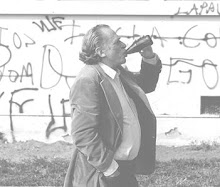With regard to my affection for Banquet Beer, I make no apologies. For in the spirit of true economy, one must broaden their sense of what "good" really means; what is this definition we have summarily levied upon beverages of leisure. Why have we broadly painted less expensive selections as "bad". Are they truly? What about them, if cared for properly, makes them such? Do they not deliver on the intended result of all beers? To manipulate blood alcohol content; this is the purpose. In a manner not overly offensive to the palate or wallet. Considering this, one easily sees that those beers demanding exorbitant prices could, in fact, be paradoxically "bad".
A time in one's life sees one reflective and appreciative of forgotten times; nostalgia is the appropriate label perhaps. Casting aside the modern craft beer affinity for hop overdose, peculiar spicing, and of course the inherent premium pricing, one diverts their attention to the side of the local beer cooler, typically the leftmost side, where budget libations take up residence among financially similar blue-collar selections. It is here where the real decision is made. A decision based upon value in the truest sense.
My selection criteria begins looping iteratively as I discount each option. So called "light" beers are simply not in play on principle. Surprisingly, Budweiser proper is too rich for my taste, priced above its neighbors and out of my refrigerator. Plus, one time I drank about five in the span of a half an hour and furiously vomited. I'll never shake the memory.
I'm left wanton for original Michelob; specifically, the teardrop bottle I recall seeing at my grandparents house in the late 70s. But I appear to be decades too late to that party. Adjacent to where I envision it might appear in the cooler, I can't help but notice High Life. The color - that markedly yellow color, evocative of urine - I cannot come to terms with. Having had High Life on a number of occasions, I know it to be better than it appears, but it is not to be, for settled in next to the Miller offering is a solitary row of stubby brown bottles, clad in pale yellow and red. The allure of Rocky Mountain water. Perhaps it really did arrive here on a train, cooled perfectly for every mile in transit between here and thousands of miles away in Colorado. At a reasonable dollar-per-serving cost, I am in. Fairly neutral in taste, yielding a distinct flavor of grain, I punish them in sequence and never ever less than one in a sitting as the bottle's unusual form factor invites such a pace.
Do I feel not as great the in morning? Typically so. Would I, and do I, feel better that same morning having opted for something "premium"; Banquet Beer's rightmost cooler neighbors? Almost certainly. But purity of ingredients and the sanctity of the recipe, sometimes, are secondary considerations. For, when I approach Public Service to pay my light bill, there is no explicit discount for the value conscious. That discount is implicit. So, you see, Banquet Beer is like industry. In that, they were both lost in the woods. And nobody, especially the little boy - "society" - knew where to find 'em. Except that the puppy was a dog. But the industry, my friends, that was a revolution.
 One of my good buddies secured a bottle of 'Another One' for me today for review. I poured it into an old timey Pilsner glass, which turned out to be appropriate, given the pale, straw color and fluffy head, no doubt partly due to the cara-pils malt.
One of my good buddies secured a bottle of 'Another One' for me today for review. I poured it into an old timey Pilsner glass, which turned out to be appropriate, given the pale, straw color and fluffy head, no doubt partly due to the cara-pils malt.
